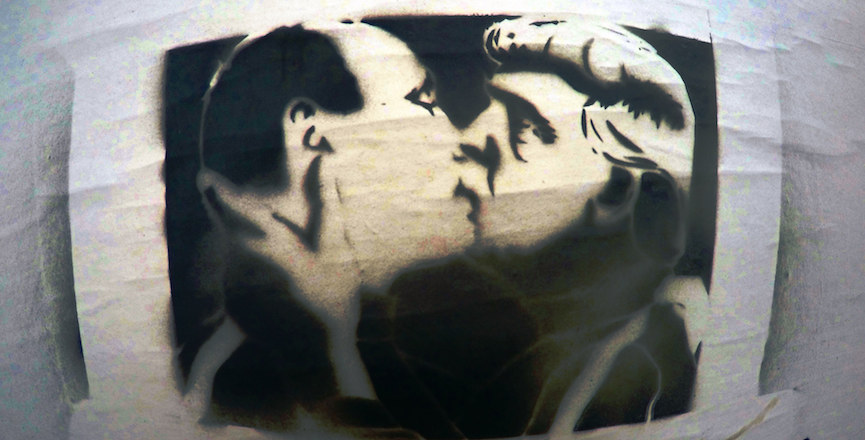It’s hard to tell if we’re watching The Manchurian Candidate or A Very British Coup.
CNN is screening the former, based on a twice-made film about a U.S. president planted by the enemy. The Russians, starting in Soviet times, stealthily recruited Trump, playing on his desperate ego and his yen to build a Trump Tower in Moscow. Then they “invaded” the U.S. election to put him in power and are now running him.
This week’s evidence is the phone call where he congratulated Putin on Russia’s election, contrary to a memo ordering: DO NOT CONGRATULATE. CNN mavens like Jeffrey Toobin sputter on about it.
Fox News has adapted A Very British Coup, a 1982 novel about a leftish prime minister undermined by the U.K.’s “deep state,” also made twice for TV. In the U.S. version, Trump was fairly elected and is being undermined by the deep state, a security-media cabal that controls the U.S.
Actually CNN seems to be screening it too. This week they interviewed a former CIA head who said the Russians may “have something” on Trump. It was like A Very British Coup for dummies. In the original, deep staters don’t go on TV to give interviews.
Personally, I’m not distressed by the phone call. He’s president, he has the right to ignore memos (in CAPS yet). He made nice, as reports said, with Putin. That’s diplomacy: diplomacy is lying, everyone knows that. He skipped berating Putin over election meddling and instead discussed the risks of a nuclear arms buildup (hardly mentioned in the news), which preoccupies Putin (wouldn’t know that either). On this particular file, Trump is the adult. Does Putin “have something” on him? So what? In politics, motives don’t matter. But I digress.
They’re both engrossing plot lines, which is the problem. They reduce the electorate to an audience. The more gripping the plot, the less voters feel they have any agency. Everything depends on intrigue and chess moves among high-level players. Nothing gets determined democratically, politics abdicates.
The ultimate in this kind of demobilizing Grand Guignol was Watergate in 1973. It followed an election in which villain/monster Richard Nixon wiped out a perfectly decent left wing Democratic candidate, George McGovern, who got only 17 of 537 electoral votes. Nixon won the popular vote by 18 million. Yet in months he was gone, crushed by an insider cabal of congress, media and security agencies. “The people” were mere, though rapt, onlookers.
So is Watergate the Ur-plotline for Trump: the only way to take him down is by stealth, versus democratic politics? Not so fast. First, Trump isn’t Nixon.
Nixon looked like a villain. He was personally repulsive. But he was also, says Noam Chomsky, the last liberal U.S. president. He created the Environmental Protection Agency, backed consumer safety, healthy workplaces, women’s rights to sports funding, appointed supreme court judges who made abortion legal and ended “Red” China’s ostracism by going there and meeting Mao. (Mao smiled when they met, infuriating western leftists, but Mao too knew what diplomacy is about: smiles and lies.)
Second, Trump isn’t just beatable, he’s already been beaten in the popular vote. U.S. voters have changed. It took a reverse genius like Hillary Clinton to lose. Sanders would probably have beaten Trump, so would Biden, without even factoring out the Russians or Cambridge Analytica.
And it wouldn’t have engendered the bottomless rage of Republicans who’ve felt, ever since, cheated out of their righteous victory by Watergate. “This Isn’t Watergate” could be the third Trump storyline and the best part is: it doesn’t matter if he fires Mueller.
These narratives don’t fade quietly, or ever. Last month U.K. Labour leader Jeremy Corbyn was charged in the British media with having been a Soviet agent in the 1980s or, at best, a dupe. Based. of course. on security sources.
Chris Mullin, who wrote A Very British Coup, and has had an entirely charming career on the left as a journalist, MP and even cabinet minister, surfaced to describe his own capers among security agencies back then and defend Corbyn. It can be hard keeping the genres of politics and fiction distinct, when even the characters themselves won’t stay in their proper lanes.
This article originally appeared in The Toronto Star.
Image: Stoerer Dresden/Flickr
Like this article? rabble is reader-supported journalism.




